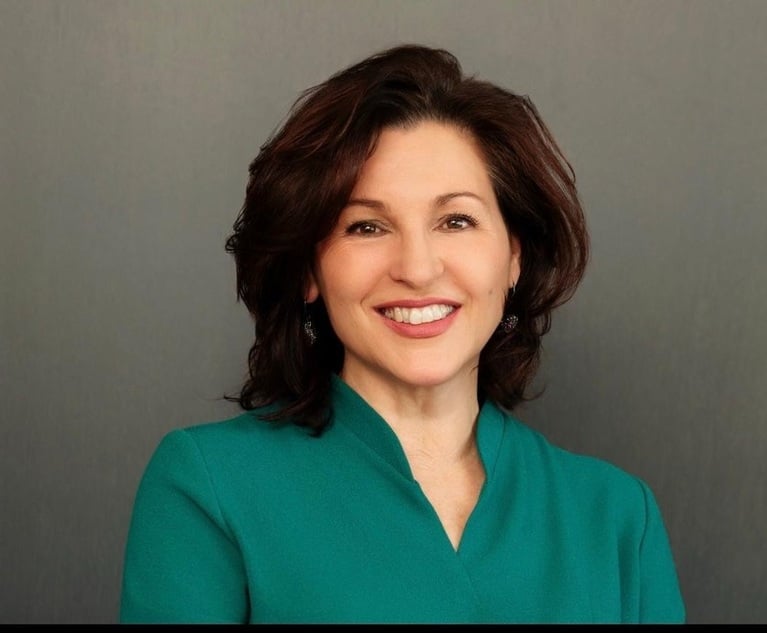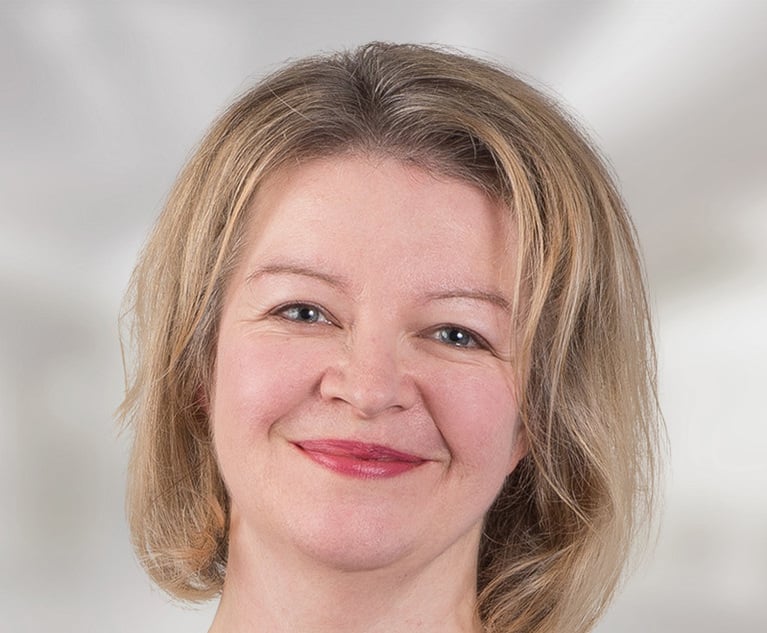 Credit: Ilham / AdobeStock
Credit: Ilham / AdobeStockIn Search of 'Neutral' Arbitration Centers, Russian Dispute Cases Move to Asia and the Middle East
Hong Kong and Dubai have seen an influx of Russian dispute cases as the West continues to impose sanctions.
November 12, 2024 at 09:21 PM
4 minute read
Hong Kong and Dubai have seen an influx of Russian dispute cases following the onset of the war in Ukraine.
Ever since countries in the West imposed sanctions on Russia following the invasion of Ukraine, the two financial centers have become the preferred arbitration jurisdictions for Russian parties in disputes.
Many Russians no longer perceive other popular arbitration jurisdictions in the U.S., the U.K. and Europe to be neutral, lawyers say.
In 2023, Russia was the seventh most popular country of origin among all dispute parties at the Hong Kong International Arbitration Center (HKIAC). A year earlier, it didn’t even make the center’s top-10 list.
“In recent years, we observed what has been labeled as a 'turn to the East' among Russian clients,” said Denis Almakaev, a partner and head of international disputes at LEVEL Legal Services, a Russia-based law firm established in 2022 by former Hogan Lovells partners after Hogan Lovells shuttered its Moscow office following the Russian invasion of Ukraine.
“Russian companies are increasingly choosing Hong Kong, Singapore and Dubai, partly due to the perceived neutrality of these jurisdictions,” Almakaev said.
Favorable arbitration law, a strong pro-arbitration judiciary and convenience of travel are also key factors in driving dispute cases to these jurisdictions, he added.
In 2023, Russia-related cases accounted for HK$18 billion (US$2.3 billion)—19% of the total amount the HKIAC saw last year. The increased caseload also coincides with increased trade between Hong Kong and Russia.
Since the onset of the war in Ukraine, Russian or sanction-related work in Hong Kong has at least doubled, said Dantes Leung, a partner at Hong Kong independent law firm Oldham, Li & Nie, during a panel discussion at Hong Kong Arbitration Week in October.
Similarly, Dubai has emerged as a popular destination for Russia-related disputes due to its perceived neutrality. According to a poll conducted by the Russian law firm LEVEL Legal Services, Russian clients in Moscow, when asked which jurisdiction they believe to be the most neutral, ranked the UAE and Dubai as top contenders.
The UAE has yet to place sanctions on Russia despite pressure from the West. In May, Hamad Buamim, chair of the Dubai Multi Commodities Centre, a leading United Arab Emirates free trade zone, said that Russian sanctions have been ineffective in stifling trade.
Finding Neutral Arbitrators
While Hong Kong and Dubai have become popular destinations for Russia-related disputes, lawyers say it is still a challenge to find neutral arbitrators, as they can be constrained by their home country’s regulations, the legal community, and political leanings.
“Sanctions are pretty new to arbitration but the usual mechanism still exists,” Leung said.
Parties can include a clause in a contract that says no arbitrator should be appointed from countries or jurisdictions that impose any kind of sanctions on any of their policies, he said.
Even if not legally prevented from acting in a Russia-related dispute, many arbitrators coming from jurisdictions that have imposed sanctions are still reluctant to take on Russian dispute cases for fear of professional repercussions back home, said Ali Al Zarouni, managing partner of the Dubai-headquartered law firm Horizons & Co.
NOT FOR REPRINT
© 2025 ALM Global, LLC, All Rights Reserved. Request academic re-use from www.copyright.com. All other uses, submit a request to [email protected]. For more information visit Asset & Logo Licensing.
You Might Like
View All
Hengeler Advises On €7B Baltica 2 Wind Farm Deal Between Ørsted and PGE
2 minute read

A&O Shearman To Lose Another Five Lawyers, Including Madrid Practice Head, to EY
3 minute readTrending Stories
- 1Newsmakers: Littler Elevates Dallas Attorney to Shareholder
- 2South Florida Real Estate Lawyers See More Deals Flow, But Concerns Linger
- 3General Counsel Accused of Destroying Evidence
- 42,000 Docket Entries: Complex South Florida Dispute Sets Precedent
- 5Incoming Howard University Law Professor Kiah Duggins Among DC Plane Crash Victims
Who Got The Work
J. Brugh Lower of Gibbons has entered an appearance for industrial equipment supplier Devco Corporation in a pending trademark infringement lawsuit. The suit, accusing the defendant of selling knock-off Graco products, was filed Dec. 18 in New Jersey District Court by Rivkin Radler on behalf of Graco Inc. and Graco Minnesota. The case, assigned to U.S. District Judge Zahid N. Quraishi, is 3:24-cv-11294, Graco Inc. et al v. Devco Corporation.
Who Got The Work
Rebecca Maller-Stein and Kent A. Yalowitz of Arnold & Porter Kaye Scholer have entered their appearances for Hanaco Venture Capital and its executives, Lior Prosor and David Frankel, in a pending securities lawsuit. The action, filed on Dec. 24 in New York Southern District Court by Zell, Aron & Co. on behalf of Goldeneye Advisors, accuses the defendants of negligently and fraudulently managing the plaintiff's $1 million investment. The case, assigned to U.S. District Judge Vernon S. Broderick, is 1:24-cv-09918, Goldeneye Advisors, LLC v. Hanaco Venture Capital, Ltd. et al.
Who Got The Work
Attorneys from A&O Shearman has stepped in as defense counsel for Toronto-Dominion Bank and other defendants in a pending securities class action. The suit, filed Dec. 11 in New York Southern District Court by Bleichmar Fonti & Auld, accuses the defendants of concealing the bank's 'pervasive' deficiencies in regards to its compliance with the Bank Secrecy Act and the quality of its anti-money laundering controls. The case, assigned to U.S. District Judge Arun Subramanian, is 1:24-cv-09445, Gonzalez v. The Toronto-Dominion Bank et al.
Who Got The Work
Crown Castle International, a Pennsylvania company providing shared communications infrastructure, has turned to Luke D. Wolf of Gordon Rees Scully Mansukhani to fend off a pending breach-of-contract lawsuit. The court action, filed Nov. 25 in Michigan Eastern District Court by Hooper Hathaway PC on behalf of The Town Residences LLC, accuses Crown Castle of failing to transfer approximately $30,000 in utility payments from T-Mobile in breach of a roof-top lease and assignment agreement. The case, assigned to U.S. District Judge Susan K. Declercq, is 2:24-cv-13131, The Town Residences LLC v. T-Mobile US, Inc. et al.
Who Got The Work
Wilfred P. Coronato and Daniel M. Schwartz of McCarter & English have stepped in as defense counsel to Electrolux Home Products Inc. in a pending product liability lawsuit. The court action, filed Nov. 26 in New York Eastern District Court by Poulos Lopiccolo PC and Nagel Rice LLP on behalf of David Stern, alleges that the defendant's refrigerators’ drawers and shelving repeatedly break and fall apart within months after purchase. The case, assigned to U.S. District Judge Joan M. Azrack, is 2:24-cv-08204, Stern v. Electrolux Home Products, Inc.
Featured Firms
Law Offices of Gary Martin Hays & Associates, P.C.
(470) 294-1674
Law Offices of Mark E. Salomone
(857) 444-6468
Smith & Hassler
(713) 739-1250









